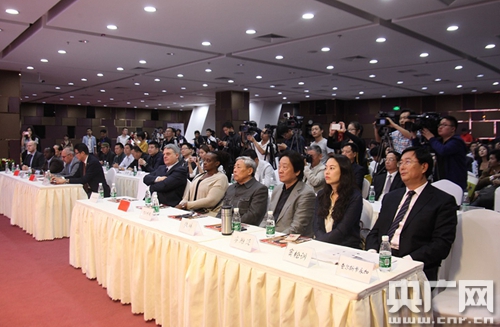Iran Has Cracked Down On China's Mortal Enemy That It Wants To Eliminate: Is The "East Turkistan Organization" To Help China?
Iran Has Cracked Down On China's Mortal Enemy That It Wants To Eliminate: Is The "East Turkistan Organization" To Help China?
Activities in Eastern Turkistan include attacks on Syrian government forces and Iran-backed Shiite militias, and even ambushing Iranian militia convoys in 2018, causing considerable losses. Since 2011, Iran has been supporting the Syrian government, sending weapons and advisers
On January 16, 2024, a missile attack launched by Iran attracted widespread attention in Syria. The targets of the attack include the Eastern Turkestan Islamic Movement (ETIM), a terrorist organization that China has always regarded as a major threat, committed to promoting independence from Xinjiang. Although Iran's actions do have some indirect help to China, whether it can be regarded as Iran's actions specifically for China still needs in-depth analysis.
First, let’s learn about the background of the East Turkish organization. The Eastern Turkestan Islamic Movement (ETIM) was founded in 1993 and was initially dominated by Uighurs. It was founded in the North Waziristan region of Pakistan. Founder Hassan Mahsum, from Hotan, Xinjiang, China, conducted religious activities in the early days, and then turned to armed struggle with a clear goal: to promote independence in Xinjiang, and the members of the organization were mostly exiles from Central and South Asia. In 1997, the organization was officially named the Eastern Turkestan Islamic Movement and began to establish connections with Al Qaeda, setting up training camps in the Taliban-controlled area of Afghanistan to produce and use weapons and bombs. After the United States launched a crackdown on Afghanistan in 2001, Kasam moved to the Pakistani border to continue his activities. In 2002, the UN Security Council officially listed ETIM as a global terrorist organization, marking the thorough determination of the organization by the international community.

By 2003, Hassan Mahsum was shot dead by Pakistani troops. Successor Abdul Hakk continued to promote organizational activities, he also began military training from Pakistan and cooperated with Al Qaeda in 2004 to carry out multiple terrorist attacks. Especially in 2008, Hakka led an organization to attack the police station in Kashgar, Xinjiang, causing serious casualties. Although Hack was hit by a Pakistani drone attack in 2009, resulting in serious injuries, he remained undead and continued to direct the organization until after 2010.
Entering the 2010s, the main activities of Eastern Turkish turned to Syria's Idlib province and joined forces with extremist groups such as the Sham Liberation Organization. To date, the organization has a scale of hundreds to thousands of people, and funds mainly rely on donations and smuggling activities from outside. According to a UN report, the East Turkish membership in Idlib Province reaches 1,000 to 2,600, mainly supported by Turkey and active in the armed struggle against the Syrian government. Activities in Eastern Turkistan include attacks on Syrian government forces and Iran-backed Shiite militias, and even ambushing Iranian militia convoys in 2018, causing considerable losses.
Iran's reaction to these activities also seemed particularly direct. On January 16, 2024, the Islamic Revolutionary Guard Corps of Iran launched several ballistic missiles targeting an East Turkish camp located in northwest of Idlib, Syria. The missile types include the Habir Shekan-type missile with a range of up to 1,500 kilometers, and the attack also involved areas in northern Iraq and Pakistan. Iran's official claims that the strike targets terrorist organizations that have hostile relations with Iran, especially those directly involved in the attack on Iran-backed armed forces.

Eastern Turkistan has long-term exchange of fire with Iranian militias in Syria and has become one of Iran's number one enemy. Since 2011, Iran has been supporting the Syrian government, dispatching weapons and advisers and playing a key role in combat. East Turkistan, on the anti-Syrian government armed side, has long been supported by Türkiye. In Idlib, Syria, East Turkish acts as a rebellious force supported by Türkiye, restraining Kurdish forces. Under the joint attack of the Russian and Syrian governments, the East Turkistan is still active, using drones and machine guns to counterattack, causing considerable losses to the Iranian militia.

However, this time Iran's missile strike was not just to help China clear the East Turkistan. Eastern Turkistan is not only an enemy to China, but also a big trouble for Syria and Iran. It boycotted the existence of Kurds and American troops along with Türkiye during the Syrian Civil War and served as an anti-government force in Idlib for a long time. Although Iran supports the Syrian government forces, its hostility with East Turkestan has accumulated deep hatred. More importantly, the existence of Eastern Turkish forces has caused the continuous confrontation between Iran and Syria, which has become a long-term trouble.
The target of this attack is not simply to "clear" Eastern Turkistan for China, but Iran is more for its own strategic interests. Although China benefits from it, the core of this action is not due to support for China. Iran's goal is to ensure its own security and consolidate its ally with Syria, in which East Turkish plays a role as a "disturbator". China's intelligence may be helpful to Iran, but it is not enough to be the main cause.
To sum up, Iran's actions this time reflect more the complexity of the regional security situation, especially the common interests of many countries in combating terrorism. Although China can benefit from it, more importantly, terrorist organizations in the Middle East pose threats to China, Iran, Syria and even the world. China should cooperate more actively with other countries, especially Iran and Syria, to form a more effective anti-terrorism cooperation network to protect its own security.

From the perspective of the situation in the Middle East, Iran and China are still stable, but each has its own strategic goals. China needs to strengthen international cooperation in counter-terrorism, especially in the Middle East, to ensure energy security and the smooth progress of the "Belt and Road".





